Profile
Andrew Maynard
I can't believe it's week three!
-
About Me:
I live and work in Arizona (where it’s crazy-hot in the summer) but was actually born in Preston and went to school in the UK. I enjoy reading and watching science fiction and have even written a book about sci-fi movies. I occasionally fly kites (but there isn’t much wind in Arizona). One of the most amazing things I’ve done is take a group of students to Antarctica. And my secret pleasure is being outside on cold rainy days (something else I don’t get in Arizona!)
-
Read more
True story — I ended up becoming a physicist because it was the only thing I was good at! (If you don’t believe me, check out my O levels and A levels below). I loved science, but biology was too messy, and chemistry required too much memorization.
When I was a teenager I wanted to do something with my life that would make the world a better place — but as I didn’t know how to do that with physics I ended up doing research that I enjoyed instead.
What’s pretty amazing is that after more than 15 years working as a research scientist I found myself in a position where I could combine my love of science and science expertise with this ambition from my teen years to actually make a difference in the world — it took that long for things to come full circle!
Now, most of my hobbies and interests (not all of them) merge with my professional life as I work on helping people understand how emerging technologies might impact their lives and the future and what they can do to ensure it’s a good future.
What’s quite funny is that it’s the things that I was bad at at school that make me good at what I do now. I am really bad with words and language. And so to be a good writer and communicator I’ve had to learn how to work within those limitations — and that has ended up making me good at what I do.
If you read the books and articles I write, you’ll notice that I tend not to use long words, and I explain complex ideas as clearly as possible — because I’m really bad with long words and I struggle to understand complex ideas myself and so have to learn how to make sense of them. And over time, this has turned me into a writer who others understand.
Much of my professional career seems to have been like this — I’m good at what I do now because I was once bad at it, and learned through my failures and mistakes. I’m still doing this. I’m sure that, in a year’s time I’ll be rolling my eyes at just how bad I was at what I do now!
Just to wrap things up, a colleague recently interviewed me on what I do and why — if you’re interested in reading more, I thought they did a good job of capturing this. You can read it here
-
My pronouns are:
he/him
-
My Work:
I study technology and the future, and help people think about how we can build a better future together.
-
Read more
I started life as a physicist (I went to the University of Birmingham, and then did my PhD at the University of Cambridge). After my PhD, I joined the Health and Safety Executive and got involved in research measuring how much dust people inhale in factories – and how to avoid inhaling the harmful stuff.
This led to me studying the safety of nanotechnology and sparked my interest in powerful new technologies that had the ability to change the world.
I moved to America to continue this work in 2000, and ended up working with the US government to ensure that nanotechnology was a safe technology. This led to me working full time for a number of years helping politicians, businesses, journalists and others make sense of new technologies and how to develop them safely.
I’m now a professor of Advanced Technology Transitions at Arizona State University, which means that I think about and study how we get from the present to the future without making a complete mess of things. My work covers pretty much every new technology you could possibly think of — including AI.
I’m also the director of the Arizona State University Future of Being Human initiative, where we quite literally ask what it might mean to be human a hundred years from now as technologies continue to advance.
As part of this I teach one of the coolest classes I’ve ever taught — Pizza and a Slice of Future. Every week, we talk about something amazing in the world of technology — and eat pizza. That’s it! Maybe it’s the pizza, but the conversations are always mind blowing.
I also write books and host podcasts — I was the co-host of the Mission: Interplanetary podcast with my good friend and former astronaut Cady Coleman.
If you’re interested, you can find out more about what I do on my website andrewmaynard.net, or my blog at futureofbeinghuman.com.
-
My Typical Day:
I’m not sure I have a typical day, but if I did it might go something like: Wake up at 5:45. Check email. Have breakfast. Do some writing — usually about technology and the future. Teach a class (I’ve just finished teaching a class about using ChatGPT). Catch up with email. Do some more writing. Beat my wife at Wordle (sometimes). Crash around 8 PM and watch some mindless TV.
-
Read more
Working from 5:45 AM to 8 PM may sound like a ridiculously long day, but of course there are breaks in it. the main think though is that I love what I do — and I think it’s important — and so I have very blurry boundaries between work time and personal time.
Plus, the work that I do is so varied that it’s always interesting.
For instance, over the past few weeks I’ve:
Attended a workshop in Los Angeles on human exceptionalism (asking whether we’re as special as we think we are as humans)
Participated in a workshop in New Orleans with some of the world’s leading AI experts
Given a talk on AI to policy experts in Washington DC
Hosted a really interesting conversation about AI and evolutionary biology online (the most surprising idea to come out of this was that AI might act like a parasite in the future!)
Written a lot about AI and the future on my Substack at Futureofbeinghuman.com
Worked with some amazing PhD students
Attended graduation and “hooded” two of my PhD students (where I put their academic scarves around their shoulders to recognize that they have successfully graduated)
Taught a course on science fiction movies and the future where we actually watch complete movies in class! (The last one we watched was the 1997 movie Contact)
Spoken with actors and film makers in Hollywood
Worked on a paper about new ways of preserving organs for transplants
And a whole lot more!
It’s probably because this is so much fun that I start early and finish late each day.
-
What I'd do with the prize money:
I do a lot of work already on public STEM engagement through my books, articles, and talks, and so it would be easy to use the $500 to help with this. But I’d like to find something more special to use the money for that would really stand out and make a difference — send me your ideas!
-
Education:
Pilgrim Upper School, Bedford (1979 – 1984) – sadly closed now.
-
Qualifications:
PhD
Cambridge University (1989 – 1992) – Physics
BSc
University of Birmingham (1984 – 1987), studying Physics.
A Levels
Physics (A)
Maths (B)
Chemistry (C)O Levels
Physics (A)
Chemistry (A)
Biology (A)
Maths (A)
Geography (A)
Religious Studies (A)
English Language (B)
English Literature (C)
French (E)(I was really bad at languages — including English! And yet I now write for a living …)
-
Work History:
Boots the Chemist 1982 – 1984
Saturday job on the photographic counterSevern Trent Water 1987 – 1989
Management traineeThe Health and Safety Executive 1992 – 2000
Research ScientistThe National Institute for Occupational Safety and Health (in the US) 2000 – 2005
Senior Research ScientistThe Woodrow Wilson International Center for Scholars (also in the US), 2005 – 2010
Science Advisor to the Project on Emerging NanotechnologiesUniversity of Michigan 2010 – 2015
Professor, Director, Risk Science Center, and Chair of the Environmental Health Science department -
Current Job:
Arizona State University 2015 – present
Professor, Associate Dean of the College of Global Futures, Director of the Future of Being Human initiative -
Employer:
Arizona State University
-
My Interview
-
My favourite CHRISTMAS LECTURES memory is:
From this year's lectures -- talking about self-driving cars, as we already have there where I live! I can actually travel from home to work in a car with no-one behind the wheel!
How would you describe yourself in 3 words?
Reimagines the future
What did you want to be after you left school?
A physicist! Boring I know, but it was the only thing I was any good at!
Were you ever in trouble at school?
Me? Noooo. Fortunately I reckon my old teachers are all retired now, so you’ll have to take my word for it.
If you weren't doing this job, what would you choose instead?
Being a professor's the best job in the world! But if I wasn't one I'd love to write books that lots of people read
Who is your favourite singer or band?
I came across a Dutch folk duo that I really like recently -- Yggdrasil -- but I also love singer-songwriters like Kaye Bush and Tori Amos
What's your favourite food?
Beans on Toast! (Boring I know)
If you had 3 wishes for yourself what would they be? - be honest!
A sharper mind, a better memory, and an aptitude with languages.
Tell us a joke.
What do you do if you see a spaceman? Park in it man! (Stolen from the Vicar of Dibley)
-


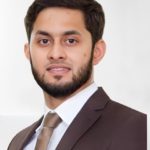
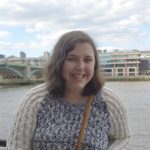
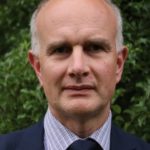
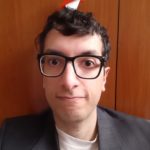
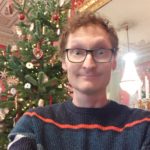
My Comments
Could AI be used to completely fly aircrafts with no pilots needed (1 comments)
will ai eventually pass the turing test (1 comments)